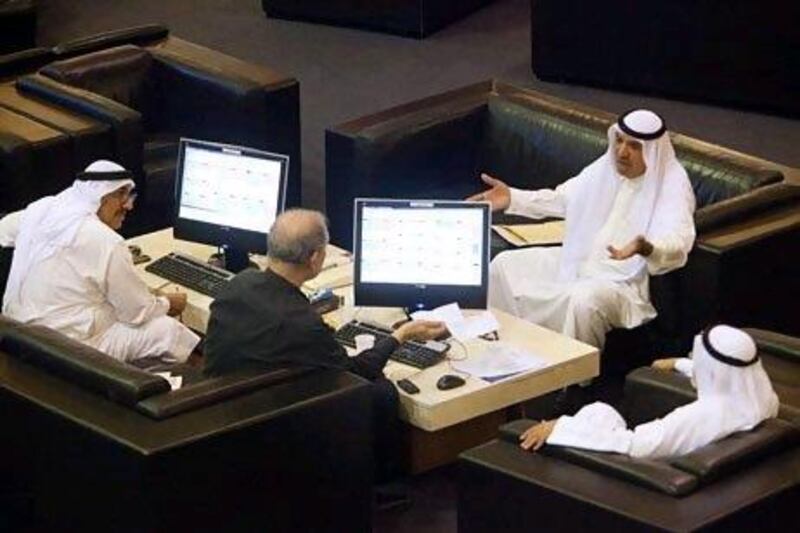Trading in shares has made a big comeback in Dubai with the Dubai Financial Market (DFM) recording strong volumes yesterday.
The news comes as the emirate's bull market continues into its seventh week, bringing a reprieve for the emirate's loss-making stock exchanges.
Traded values reached Dh713 million (US$194.1m), a two-year high for the exchange.
The bounce comes at a welcome time for Dubai Financial Market Company, the Gulf's only listed stock exchange, where revenue fell by one third as trading activity dwindled. DFM Group, including its subsidiary Nasdaq Dubai, reported a net loss of Dh6.9m for last year, compared with a profit of Dh78.9m a year earlier.
Stocks on the DFM General Index have risen 23.8 per cent since the start of the year, entering a bull run on January 16. The index rose 2.7 per cent yesterday to 1,676.49.
Dubai stocks closed at their highest since April, surpassing levels reached last June before the UAE was denied an upgrade to "emerging market" status by the index provider MSCI.
The rally vindicated a sense that local stocks were due for a correction, amid stronger-than-expected company earnings and a burst of spending by the Abu Dhabi Government, said Fathi ben Grira, the chief executive at Menacorp, a financial services firm based in Abu Dhabi.
"It had to happen one day," he said.
But the recent rally encouraged a return of investors who had eschewed trading in local markets since the onset of the global financial crisis, particularly at the high-net-worth end of the market, Mr ben Grira said.
"Accounts that have been inactive for two to three years have been reactivated," he said.
Dubai's stock market was one of the most active in the region before the global financial crisis, but the withdrawal of speculative "hot money" around the time of the crash has resulted in low volumes since 2008.
Even given yesterday's increase, the value of stocks traded remained a fraction of the Dh10.9 billion traded at the peak of activity in November 2007.
Saudi Arabia has also benefited from a surge in liquidity, with daily trading values on the Tadawul All-Share Index crossing the $3bn mark for the third time in the past seven days as traders anticipate a loosening of restrictions on international investors this year.
However, the Abu Dhabi Securities Exchange (ADX) has languished, with volumes remaining relatively low. The ADX General Index has gained 7 per cent since the start of the year, and rallied 1.2 per cent yesterday to 2,571.58.
Many investors avoided local markets over the past year despite improving fundamentals in the region, largely as a result of external shocks, said Daniel Rudd, the head of Middle East and North Africa wholesale at HSBC Global Asset Management.
"Local investors have not only been keeping an eye on the European debt crisis, but have also been sitting on the sidelines awaiting the outcome of the Arab Spring," he said.
Amid the weak market activity, banks including HSBC Middle East and Shuaa Capital have wound down their retail brokerages to focus on institutional clients.
About half of the UAE's brokerages ceased operating last year after a period when they proliferated, eroding potential economies of scale.
The improvement in market liquidity, if sustained, may also go some way towards alleviating the concerns of MSCI about the reclassification of the UAE as an emerging market. The index provider said in December that it would consider levels of trading in its review of the UAE and Qatar exchanges, due in June.
twitter: Follow our breaking business news and retweet to your followers. Follow us






